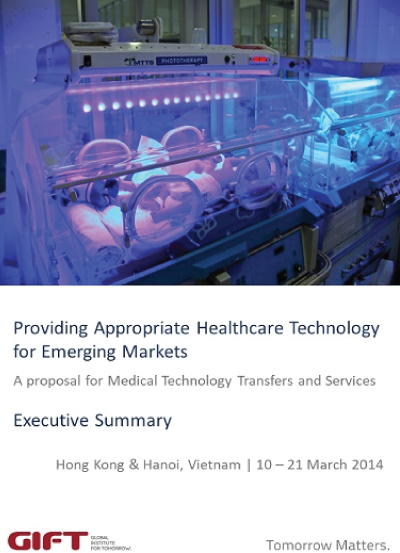Every year, approximately 4 million newborns die within their first days or weeks of life. The vast majority of these deaths occur in developing countries and are caused by conditions such as respiratory distress syndrome and infant jaundice, conditions that are often easily preventable or treatable with timely care. Yet neonatal health remains one of the least prioritised areas in global healthcare, attracting limited funding, research, and innovation compared to other medical fields. Existing solutions are often designed for wealthier markets, leaving communities in low-resource settings with equipment that is either inappropriate, unaffordable, or unavailable.
Medical Technology Transfer and Services (MTTS), a Vietnamese medical equipment manufacturer, has been working to bridge this gap since its inception. By designing and adapting modern neonatal care technologies specifically for the realities of developing countries, MTTS has made critical interventions more affordable and more accessible. To date, much of MTTS’s equipment has been purchased by NGOs and development partners such as East Meets West (EMW) through its Breath of Life programme and then donated to public hospitals. This model has achieved considerable impact but leaves MTTS dependent on external grants and prevents it from scaling its operations sustainably.
In March 2014, 22 participants from 11 countries and 15 organisations, as part of the GIFT Global Leaders Programme, partnered with EMW and MTTS to explore how MTTS could grow its business over the next five years while amplifying its impact on neonatal health. After a week of learning and discussions in Hong Kong, the group travelled to Hanoi and surrounding provinces to visit hospitals, equipment distributors, and community representatives to gain direct insight into the Vietnamese healthcare landscape. Drawing from this research and their diverse professional experiences, the team developed a comprehensive set of recommendations for MTTS.
The resulting report provides a roadmap for MTTS to shift from a largely donation-driven structure to a commercially viable, self-sustaining social enterprise model. At its core, the strategy aims to balance profitability with purpose, enabling MTTS to achieve financial stability while scaling its impact and innovation in neonatal care.
Key recommendations include:
- Market expansion
Grow MTTS’s presence beyond the public hospital system by entering the private healthcare sector in Vietnam and expanding into emerging ASEAN markets and other developing regions. This diversification would reduce reliance on a single customer base and expose MTTS to high-growth markets. - Product diversification
Broaden MTTS’s product portfolio to address a wider range of neonatal health needs, ensuring that hospitals and clinics can source a full spectrum of solutions from a single trusted provider. - Operational improvements
Optimise supply chains and explore relocating the manufacturing hub to reduce production and distribution costs. Lower costs will improve affordability and competitiveness, particularly in low-resource markets. - Sales and marketing strategy
Build an in-house sales force capable of actively engaging customers, supported by incentive structures and professional training. A stronger sales culture and brand identity will position MTTS at the centre of its selling process rather than relying on third parties. - Strategic partnerships
Engage with global and regional partners to strengthen research and development capabilities, scale operations overseas, and attract new funding streams to fuel growth and innovation.
The report also proposes an initial investment of US$1.5 million, raised through a mix of debt and equity, to support MTTS’s next stage of development. If implemented, the plan projects sales of US$30 million and a net income of US$4 million by 2019, enabling MTTS to reinvest in innovation, reach more hospitals, and ultimately save more newborn lives.
This report is more than a business plan; it is a blueprint for social impact at scale. By leveraging its existing expertise and reputation, MTTS can demonstrate how a mission-driven enterprise can thrive in emerging markets, proving that affordable and effective neonatal care is possible even in the most resource-constrained settings. With the right strategy, MTTS has the potential not only to sustain itself but also to transform neonatal care delivery across the developing world, offering hope and better health outcomes to millions of vulnerable infants and their families.


